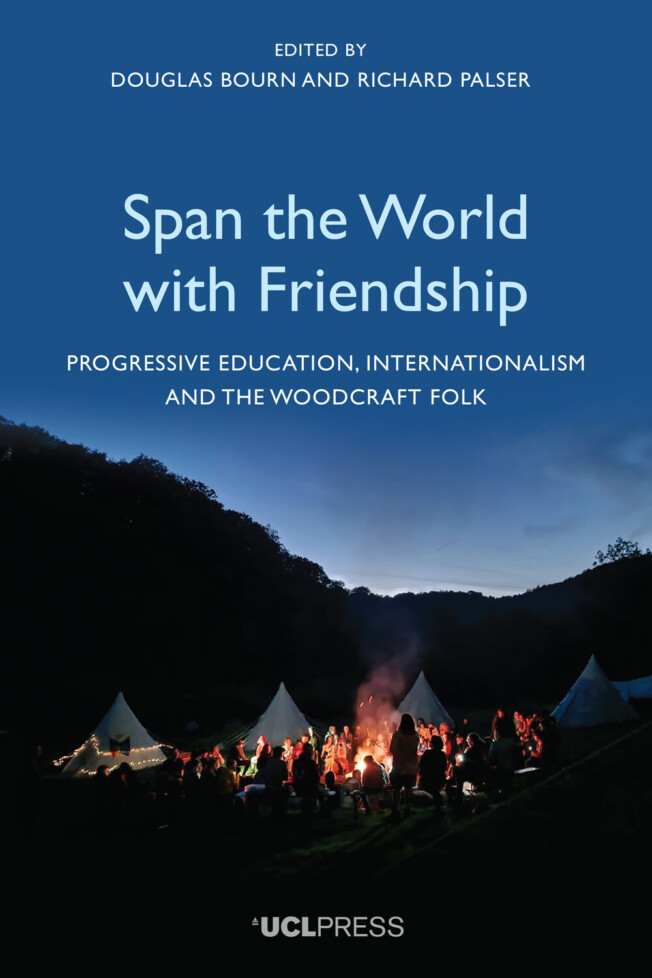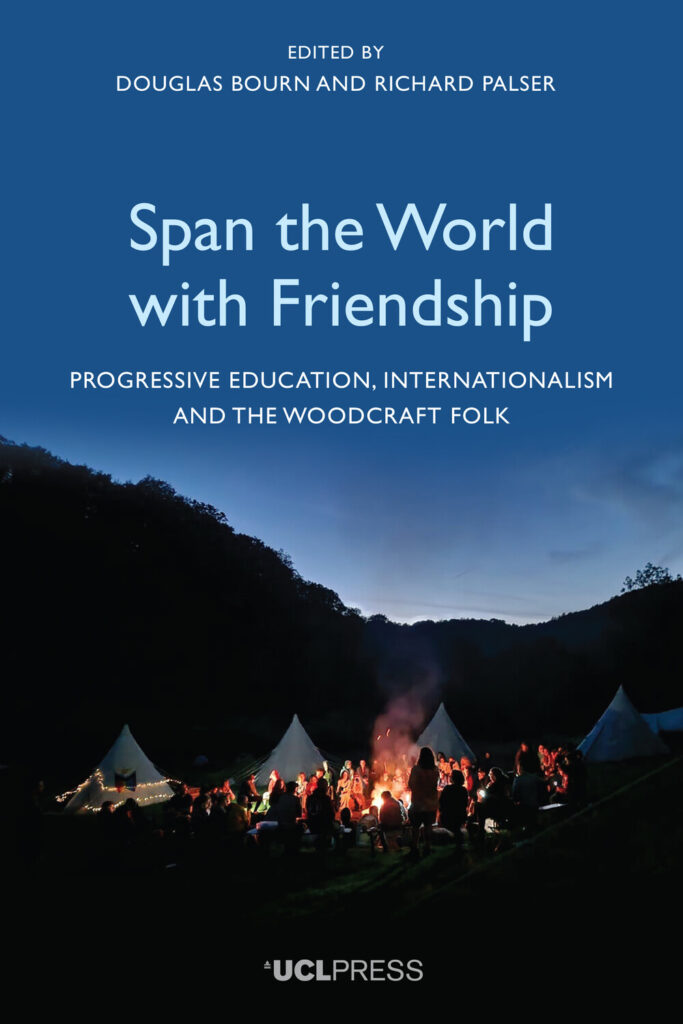
Span the World with Friendship
Progressive education, internationalism and the Woodcraft Folk
Douglas Bourn (Editor), Richard Palser (Editor)
Within the histories of progressive educational movements and youth work, one organisation that rarely gets a mention is the Woodcraft Folk. Founded in 1925, it has been consistently at the forefront of promoting radical social change through education. It played a role in breaking down the barriers between East and West during the Cold War, in promoting a co-educational and cooperative based approach to learning, and in encouraging environmental activism at a time when it was unfashionable.
The Woodcraft Folk’s evolving approach to education for social change is explored in Span the World with Friendship from a range of disciplinary perspectives, including political and social theory, cultural history, anthropology, educational theory and youth work theory. Through investigation of published and primary sources, including letters, meeting records and oral testimonies, contributors bring scholarship to a narrative that has often been uncritical. Beginning with a biography of founder Leslie Paul, chapters study the Folk’s relationship to debates in the labour movement, the extent to which the eugenics movement influenced its ideas and practices, and how the folk songs and dances used within the organisation reflected wider social and cultural trends. Internationalism is a key theme running through this book which concludes with a focus on how the Woodcraft Folk’s progressive nature is moving it increasingly towards being a youth-led movement.
List of figures
List of abbreviations
List of contributors
Acknowledgements
1 Introduction
Douglas Bourn and Richard Palser
Part I: Emergence and development of a progressive youth movement
2 Progressive cultures in interwar Britain: situating Leslie Paul
Annebella Pollen
3 All those who are young in spirit
Will Searby
4 Socialism, eugenics and the Woodcraft Folk in the interwar years
Richard Palser
Part II: Internationalism
5 Educational principles and the educational practice of international camps, 1945-1970
Richard Palser
6 From internationalism to international solidarity
Douglas Bourn
Part III: Woodcraft Folk culture
7 Cultural interweavings of English and German youth movements, 1920-1960 Susanne Rappe-Weber
8 We will go singing to the fashioning of a new world
Richard Palser and Douglas Bourn
Part IV: Changing role of young people
9 Youth is not wasted on the young Delilah Wallbank
10 Young people as global citizens and global youth work
Douglas Bourn
11 Young people: impact of Woodcraft Folk activities
Deborah Mccahon
12 Conclusion
Douglas Bourn and Richard Palser
Index
DOI: 10.14324/111.9781800088498
Number of illustrations: 24
Publication date: 02 June 2025
PDF ISBN: 9781800088498
EPUB ISBN: 9781800088504
Read Online ISBN: 9781800088498
Hardback ISBN: 9781800088474
Paperback ISBN: 9781800088481
Douglas Bourn (Editor) 
Douglas Bourn is Professor of Development Education at UCL and author of numerous books on education for social change, global learning and social justice.
Richard Palser (Editor)
Richard Palser is a retired Further Education lecturer, and an independent researcher and writer on the history of the Woodcraft Folk.
‘The Woodcraft Folk has long made the case for progressive education harnessing the outdoor environment. Span the World with Friendship offers insightful reflections on how a youth organisation can and should try to change the world.’
Paul Adams, University of East London
Related titles
Span the World with Friendship
Progressive education, internationalism and the Woodcraft Folk
Within the histories of progressive educational movements and youth work, one organisation that rarely gets a mention is the Woodcraft Folk. Founded in 1925, it has been consistently at the forefront of promoting radical social change through education. It played a role in breaking down the barriers between East and West during the Cold War, in promoting a co-educational and cooperative based approach to learning, and in encouraging environmental activism at a time when it was unfashionable.
The Woodcraft Folk’s evolving approach to education for social change is explored in Span the World with Friendship from a range of disciplinary perspectives, including political and social theory, cultural history, anthropology, educational theory and youth work theory. Through investigation of published and primary sources, including letters, meeting records and oral testimonies, contributors bring scholarship to a narrative that has often been uncritical. Beginning with a biography of founder Leslie Paul, chapters study the Folk’s relationship to debates in the labour movement, the extent to which the eugenics movement influenced its ideas and practices, and how the folk songs and dances used within the organisation reflected wider social and cultural trends. Internationalism is a key theme running through this book which concludes with a focus on how the Woodcraft Folk’s progressive nature is moving it increasingly towards being a youth-led movement.
‘The Woodcraft Folk has long made the case for progressive education harnessing the outdoor environment. Span the World with Friendship offers insightful reflections on how a youth organisation can and should try to change the world.’
Paul Adams, University of East London

